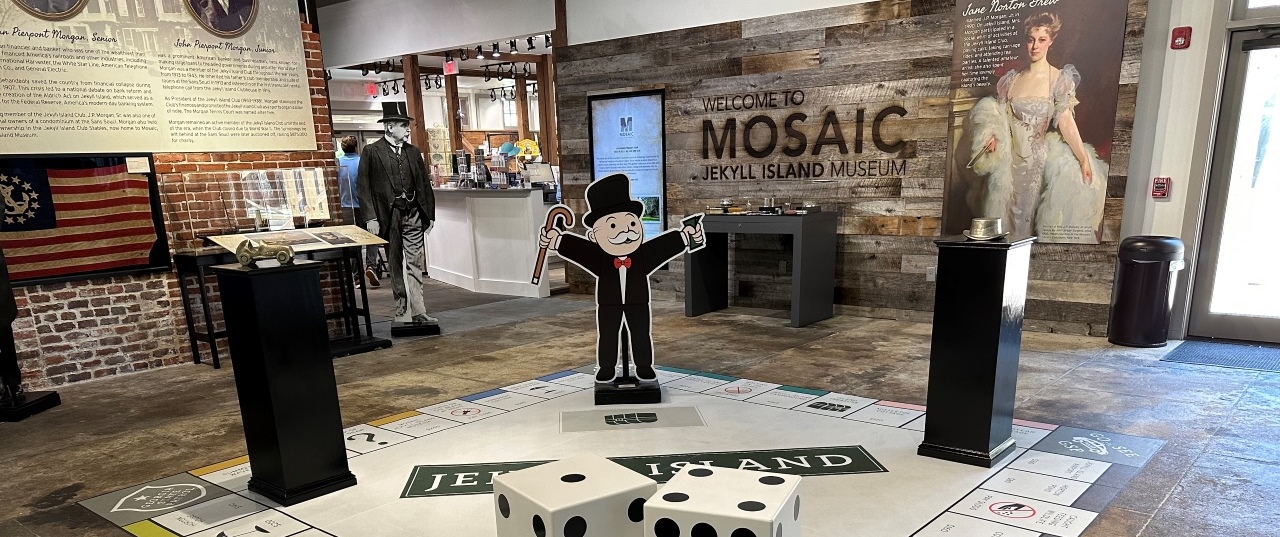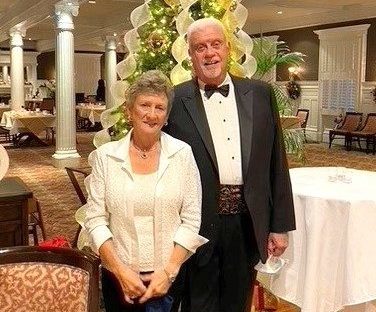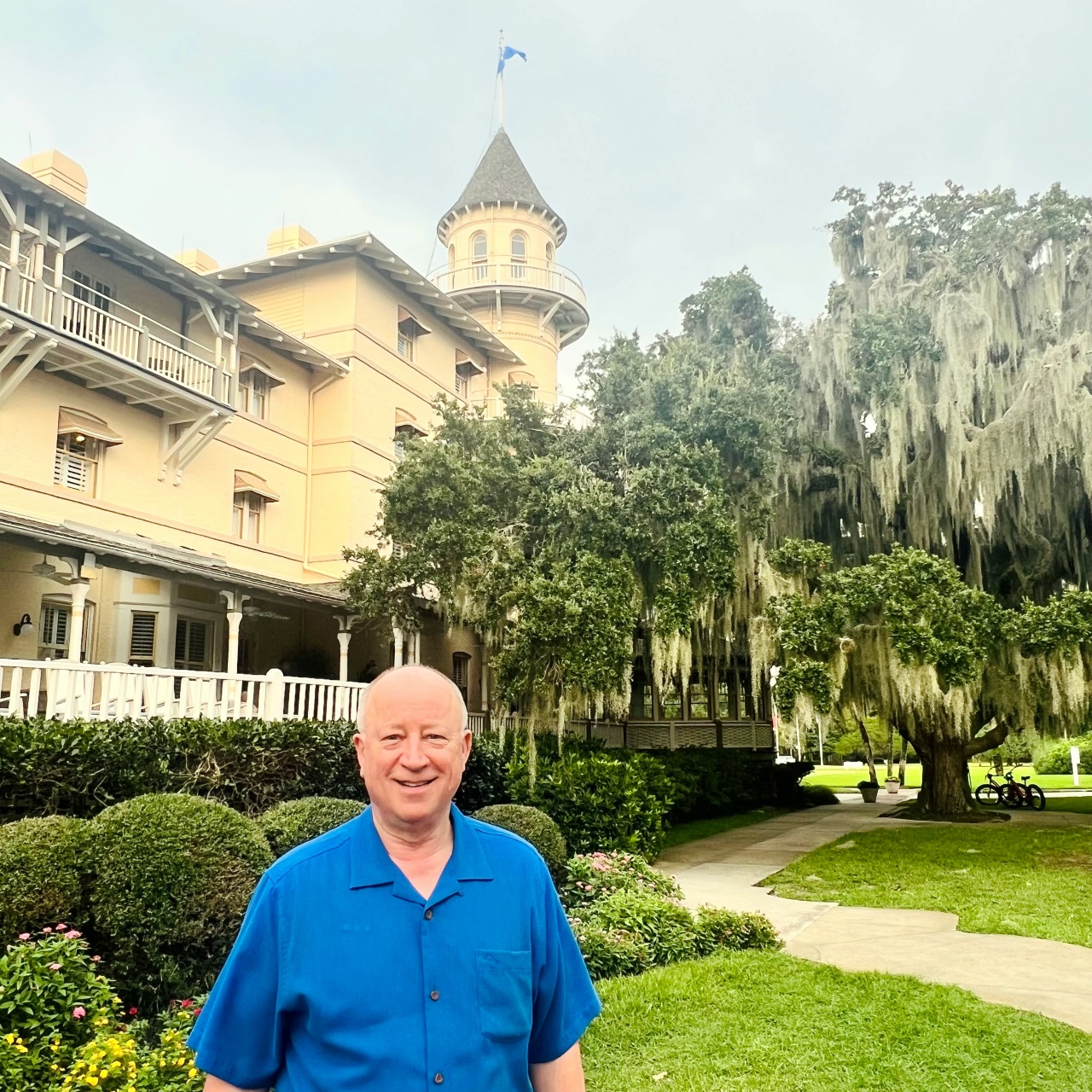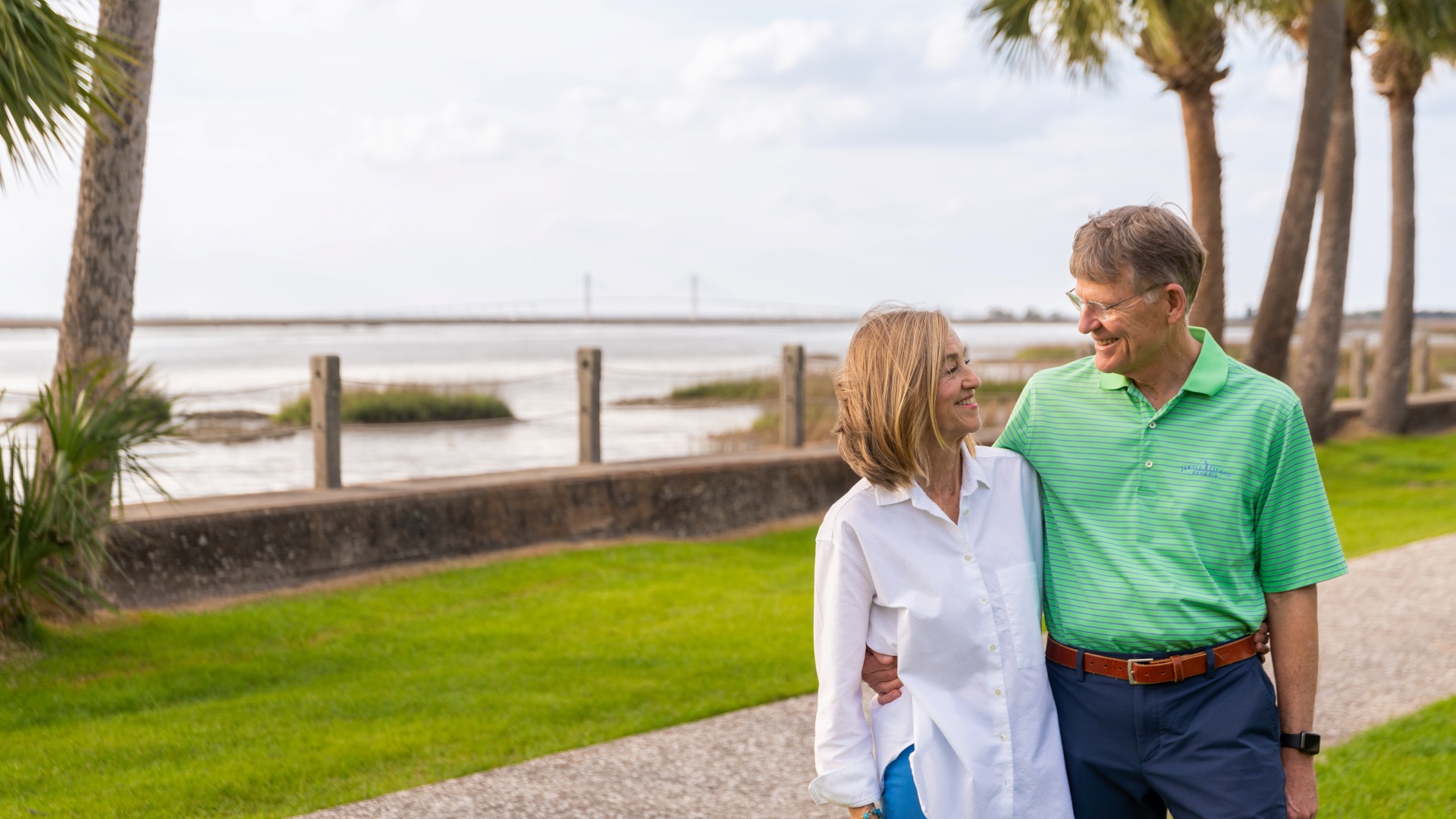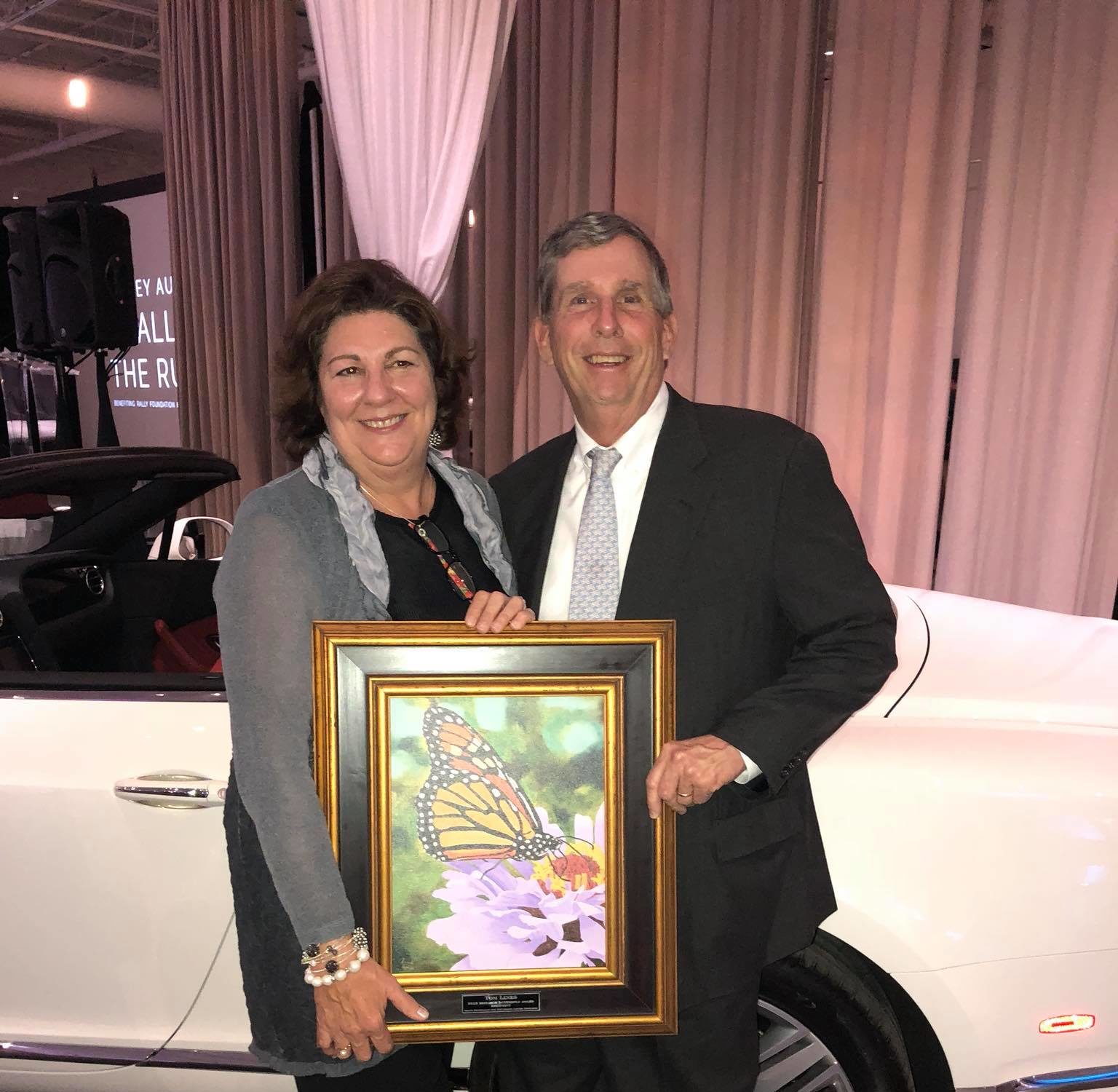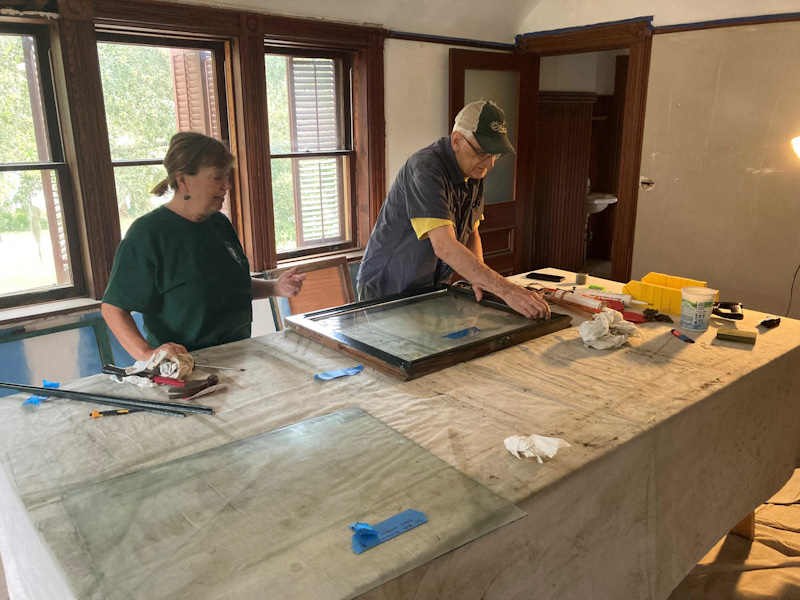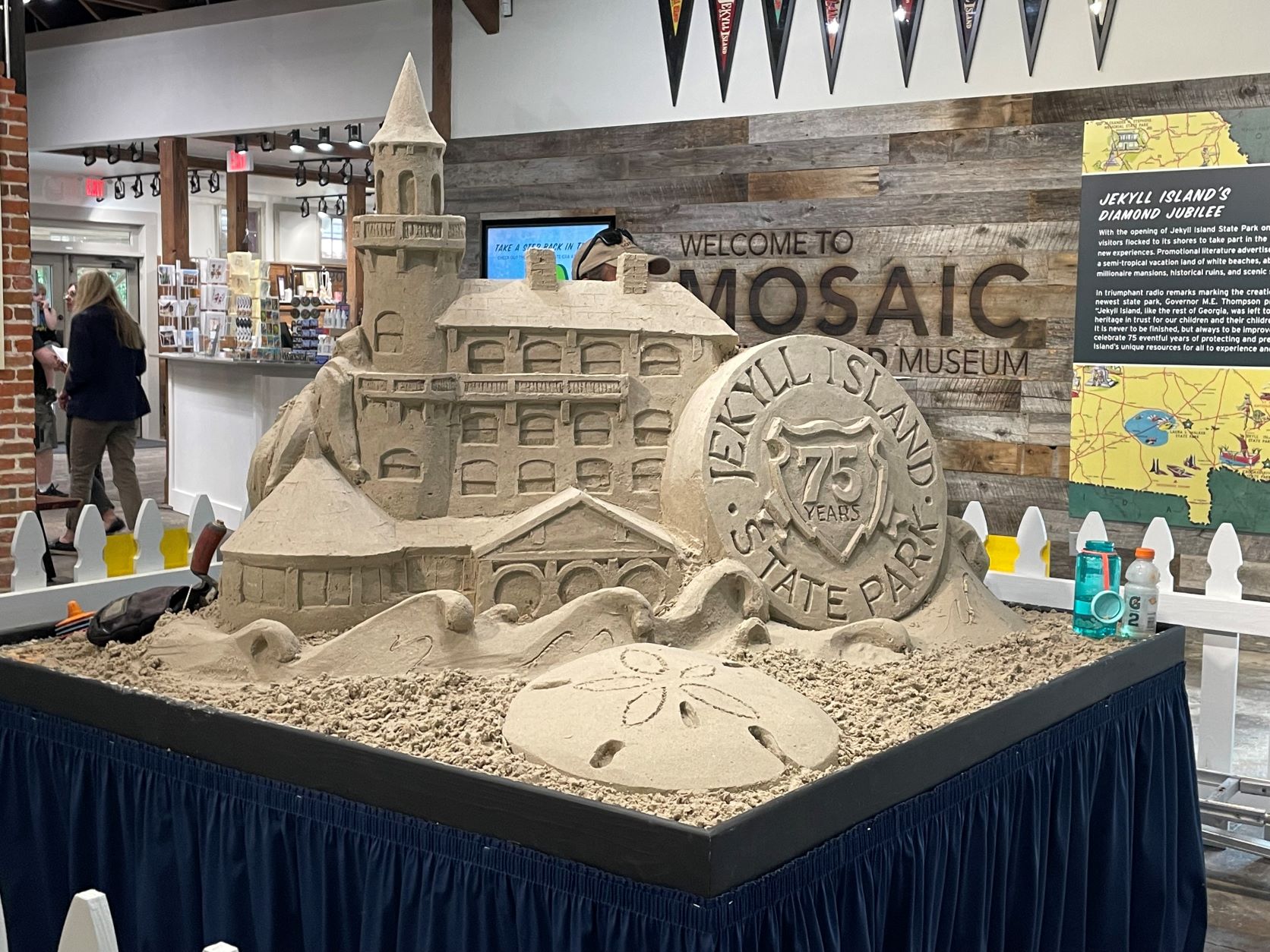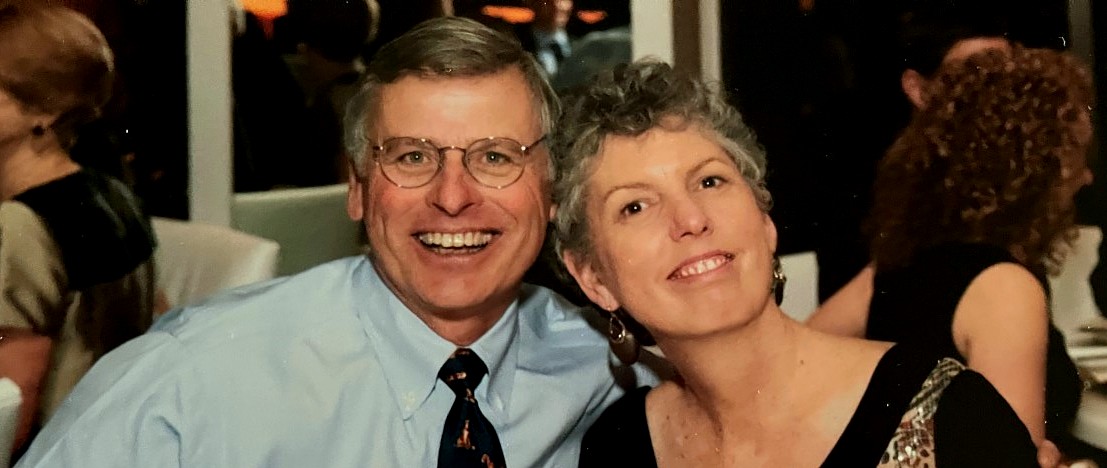Caryl Rice isn’t claiming her story of how or even why she now finds herself on Jekyll Island as unique. In fact, she isn’t entirely clear what brought her here to become a full-time resident, other than the obvious: proximity to the ocean and beaches, the dazzling sights of sunrises and sunsets, the aged oaks and cool seasonal breezes, the annual calendar of activities, plus the hidden gems she has specifically found for herself hidden among the island’s unique geographical location and unrivaled place in American history.
All that, and the fact her brother was an avid golfer, came together in the mid 70s as the fates aligned, to make sure Rice knew the Jekyll gem existed.
On second thought, she said, those reasons do bond nicely to form a solid case for why Jekyll Island was, first a family getaway, and now, has become a stand-out in her seasoned life as a very attractive place to lay warmer roots.
My late Husband, Ted, and I stopped on Jekyll in the mid 80’s on the way to Florida, and it was as if everything aligned, being in the right place, at the right time,” she said. They purchased their first Jekyll home at what is now Villas by the Sea when they first were offered for sale as condominiums.
The Rice’s rented their condo to vacationers for 11 years and then decided to find a permanent future retirement home, which they did in the mid 90s. They continued to rent their “new” Jekyll house until 2010 when they remodeled and made the house into a home. After years of traveling back and forth to the Island from Ohio, Rice and her husband made a permanent move. It didn’t take long to become part of the Jekyll community. Ted never knew a stranger and became active in the Jekyll Island Citizens Association and Rotary. Caryl focused her attention on the Jekyll Island Arts Association, the Jekyll Island Ladies League, and the Great Dunes 9-hole ladies golf league. As a couple, they were members of the Sand Dollar Club, the Jekyll Singers, and the Jekyll Presbyterian Community Church.
Now decades later, Jekyll Island is not merely a beautiful escape from the less-than-pleasant winters in her native home up north, but has become one big neighborhood, where full- and part-time residents keep an eye out for one another to ensure their well-being.
Especially this year, Rice has truly appreciated the kindness of island friends. It was with the passing of her husband that she received a constant flow of love and positive energy from so many dear friends, “in a way you would be hard pressed to find anywhere else,” she said.
Rice does have an eye for beauty, and she creates artwork which often reflect this inner glow she has about her. In a technique which may or may not have a specific label, she creates unique works of art which involve fabrics, thread, and a bit of paint.
The Jekyll Island Art Association classification for her work is “fiber arts,” but, it’s not a fully encompassing title for the art Rice is learning to master. As tricky as crafting her pieces may be, and then explaining what it is and how it was made, Rice’s pieces are fascinating.
Simple or complicated, the words to describe won’t be needed later this year, when Rice offers pieces of her works for viewing on the walls at the Jekyll Island Art Association, housed in Goodyear Cottage.
“I rarely show my work to people, especially not in this wide of a forum,” she said. “I have worked on pieces for this show from the summer of 2022 and will still be working on more through October. I don’t want to say I have worked frantically to create pieces for show, but I will say plenty of time went into creating unique pieces that aren’t seen in many other places.”
When not on the golf course or working on her artwork, Rice can often be found tucked away in some of the more secret spots on the Island. These are places lesser known to guests who meander through the historical timelines of the Jekyll Island Club Resort (formerly Hotel), opt for seeing the Georgia Sea Turtle Center, or taking their bicycles to the tabby walkways for the seemingly never-ending bike path around the state-owned Island.
While Rice may be a bit shy about showing her personal art works to the public, she is more than happy to share the loveliness of the Island with fellow appreciators of the arts. She volunteers regularly with the Jekyll Island Art Association and loves to share the Island with her son and his family when they come to visit.
She knew right from the moment she and her late husband stepped onto Jekyll; this place was calling her home. And since moving here full-time, that magic feeling of home is the same as what so many of the Island’s long-held dwellers and new residents feel. The Rice’s love of Jekyll Island is what led them to donate to the Jekyll Island Foundation. It continues to be Caryl’s way to support the many Foundation projects that help the Jekyll Island Authority keep the island vibrant and that add to the wonderful story of Jekyll.
“There is something so special about this Island,” she said. “It’s the unique place in where it is situated in the world.”
And as for those secret hiding places she likes to tromp off to when she has a moment or afternoon to spare? Well, everyone will have to find their own special Jekyll hiding spot, because she isn’t willing to reveal her tucked-away place of serenity among the Island’s 5,500+ acres and 10 miles of shoreline.
